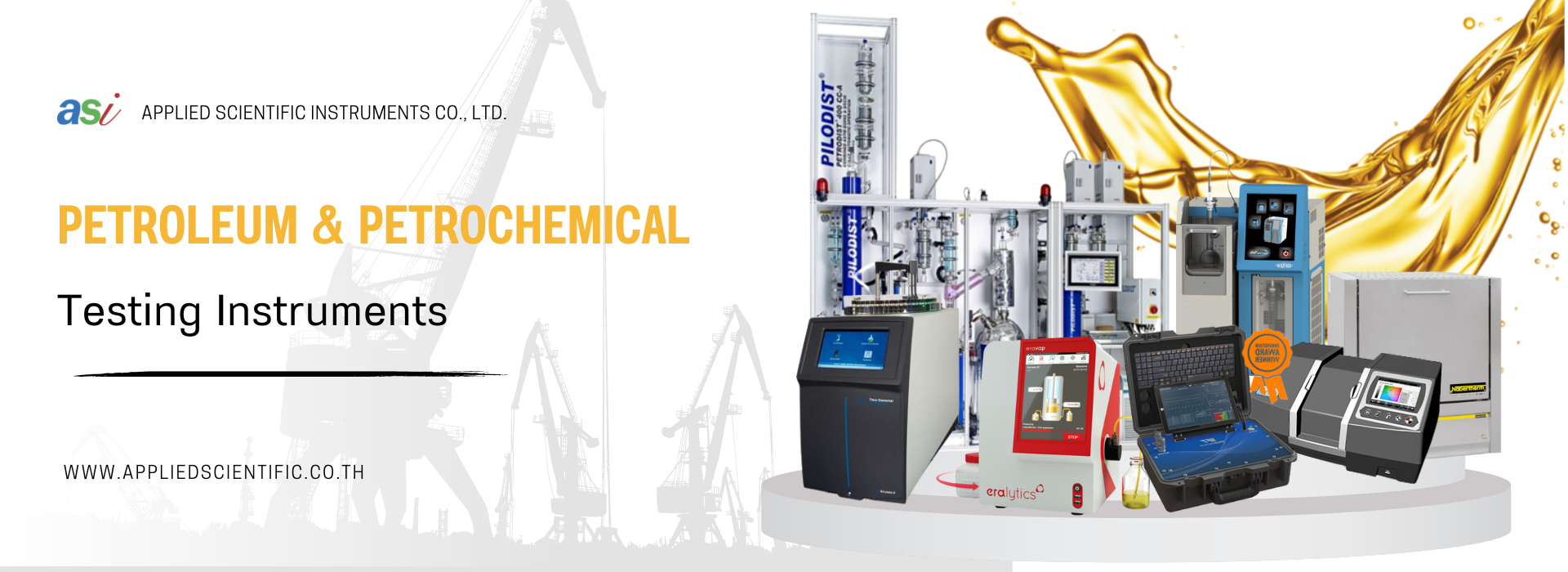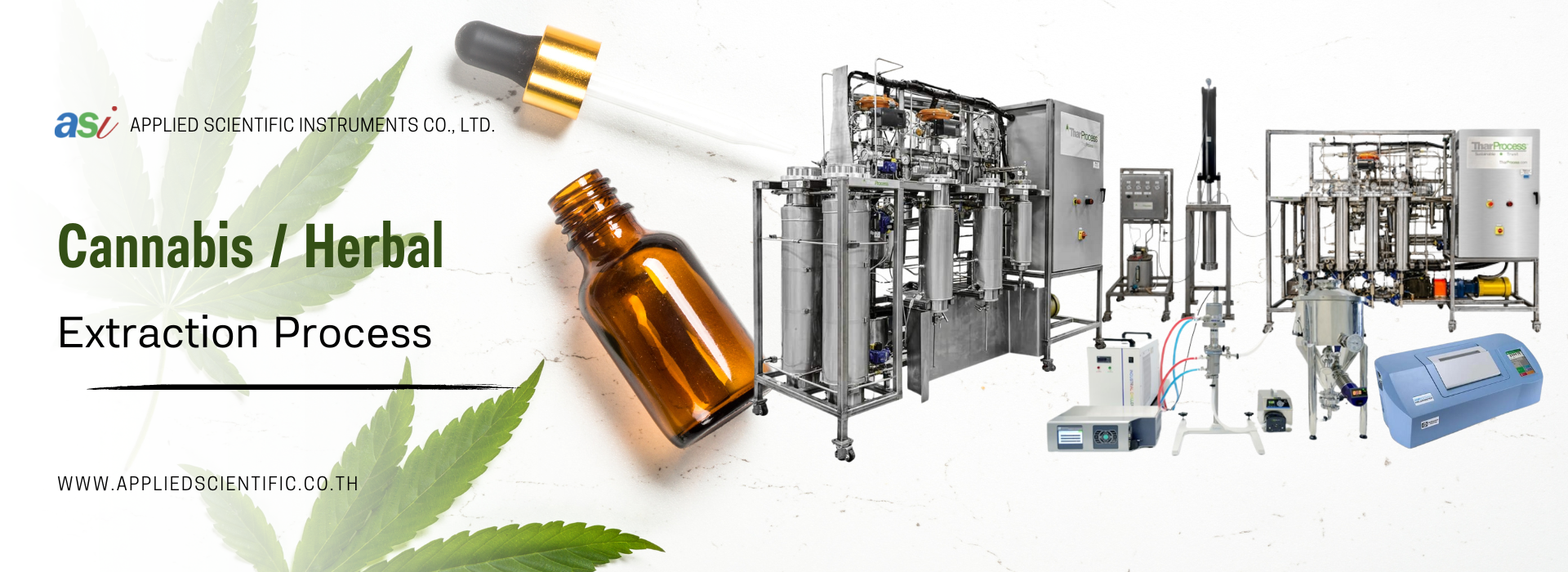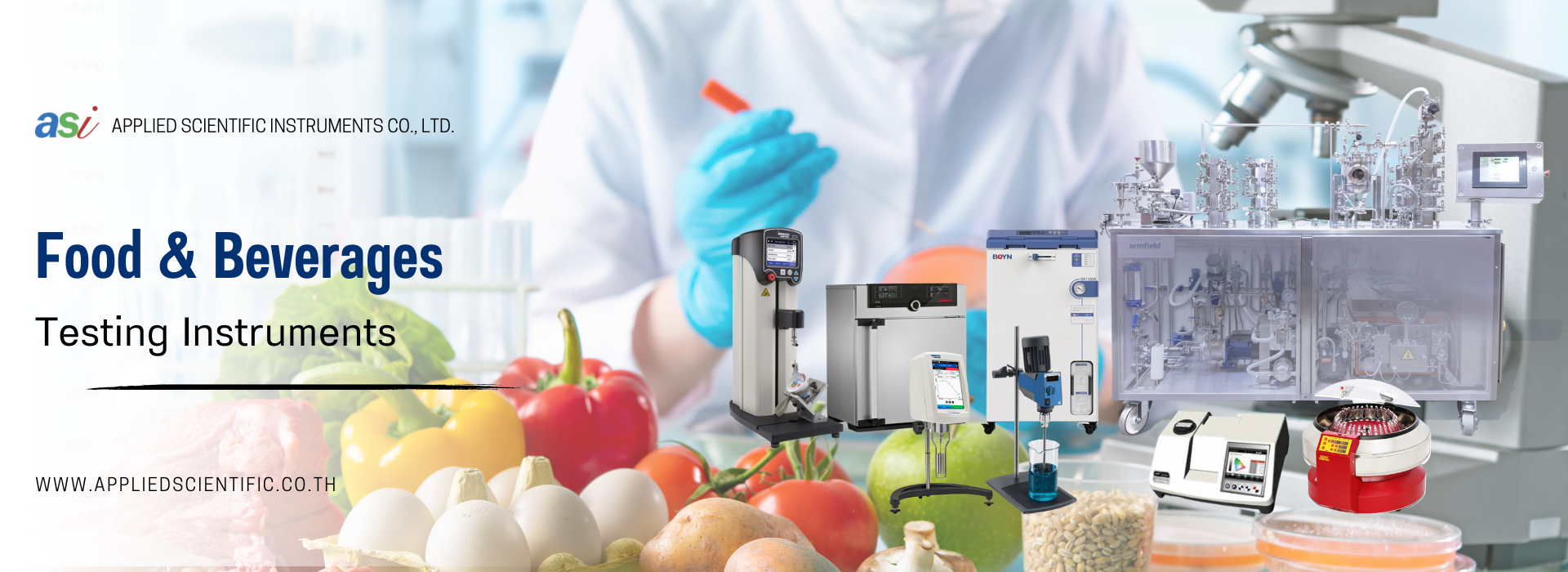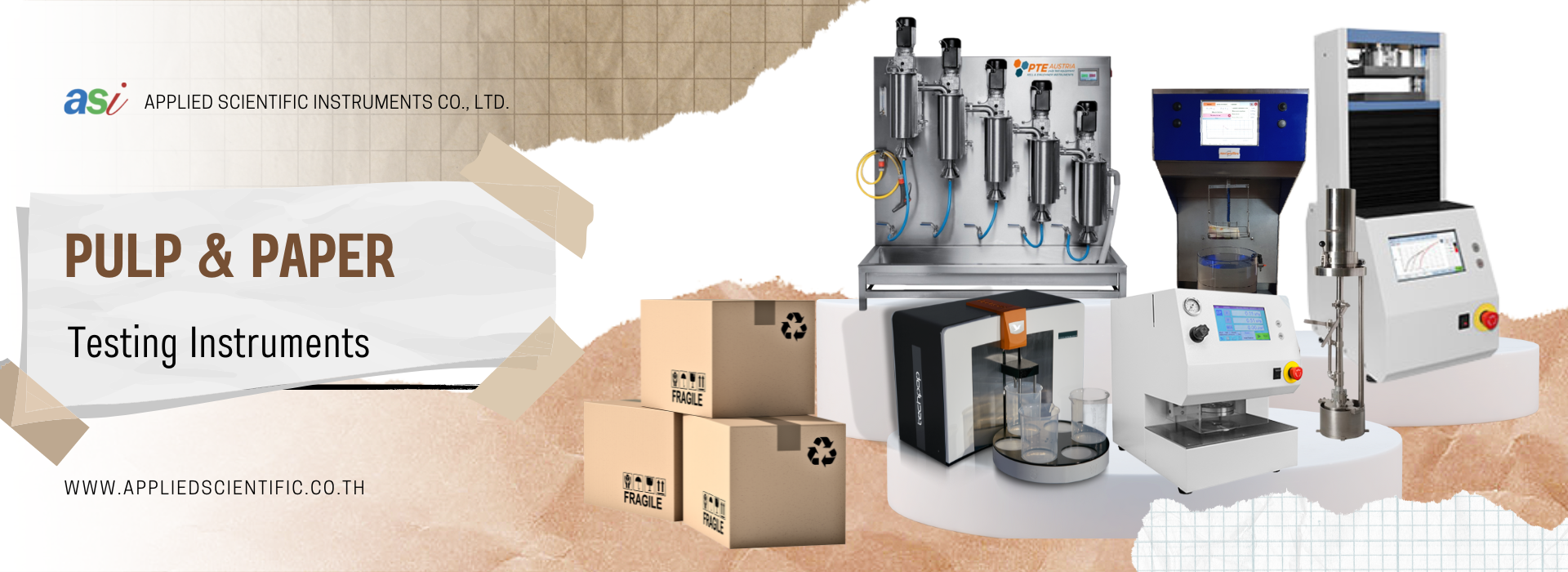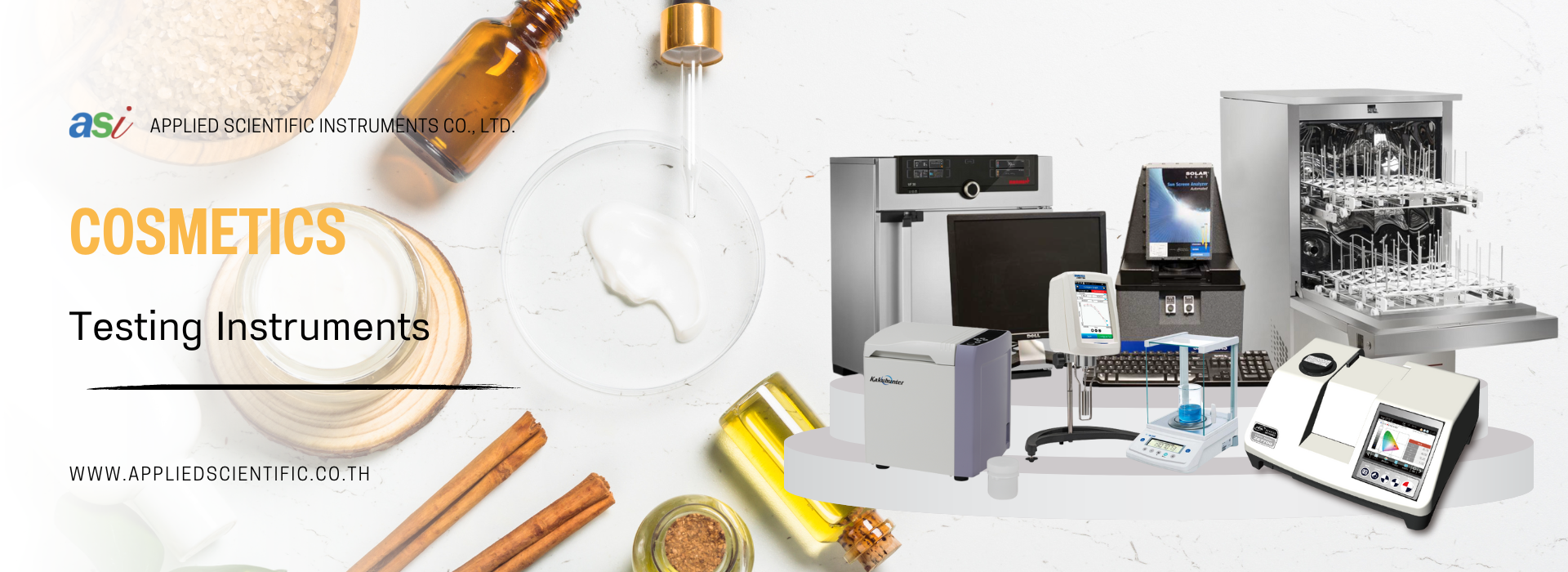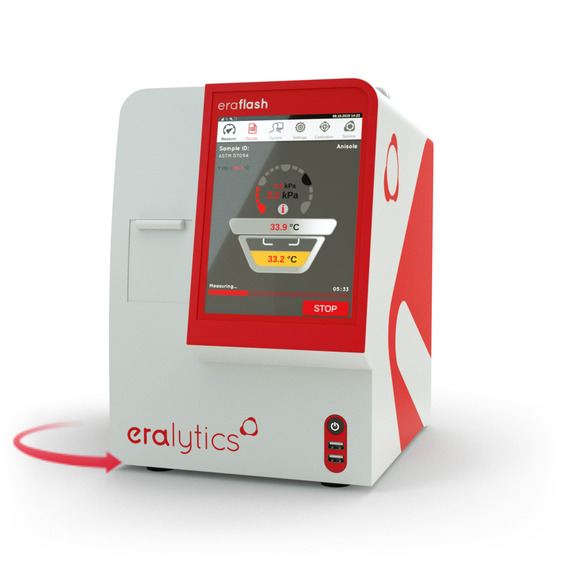
THE COOL SIDE OF FLASH POINT TESTING
31 พฤษภาคม 2566
ผู้ชม 555 ผู้ชม
Low Temperature Flash Point Testing
To increase sample throughput for low temperature flash point testing the ERAFLASH LT was equipped with stacked Peltier elements. This leads to three major improvements for low temperature flash point testing:
- The cooling speed of the instrument was increased by approximately 35%
- Without any external cooling temperatures approximately 35 °C below ambient temperature (e.g -15 °C) are accessible.
- With external water cooling low temperature flash point testing down to -40 °C oven temperature is possible
Now simple low temperature flash point testing is possible without the need to cool the equipment with dry ice or other substances.
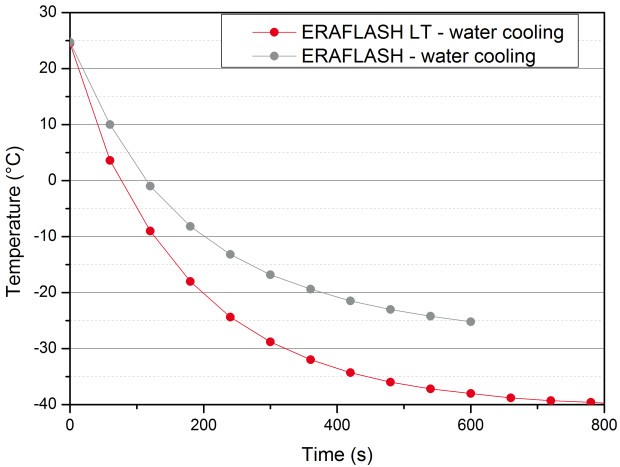
Further Improvements for Low Temperature Flash Point Testing
ERAFLASH LT is equipped with a coolant valve that automatically shuts the coolant flow off if not needed. This helps to eliminate condensation of humidity on the cooler. Ice formation during cool down on the oven surface is prevented by using a cooling cup that shields the oven surface from the ambient air. It is also possible to cool the sample using ERAFLASH LT prior to the actual measurement.
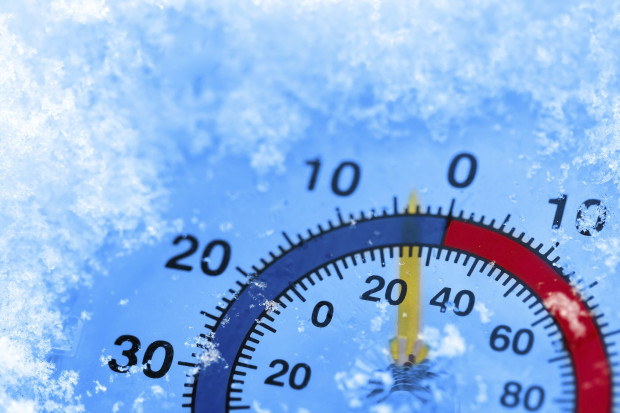
Applications
ERAFLASH LT is the ideal partner if samples with flash points below ambient temperature or even below 0 °C are measured. According to ASTM D7094 and IP620 the flash point measurement needs to be started 18 °C below the expected flash point. For a sample like Ethanol with an expected flash point of around 12 °C the measurement needs to be started at -6 °C. Using ERAFLASH LT speeds up the analysis as it is optimized for low temperature flash point measurements. Flash points of crude oils, especially if they still contain volatile compounds, can reach flash points well below 0 °C. Industries with high sample throughputs such as the fragrances industry also profit from the fast turnaround time due to the increased cooling rate.

Measurement Procedure
Just four easy steps are required for a safe low temperature flash point testing at maximum precision:
- Enter sample ID and operator name
- Select the measurement standard and add additional parameters (e.g. expected flash point)
- Fill the sample cup with sample (1 mL or 2 mL), place the sample cup inside the measurement chamber, and close the door
- Press the RUN button
The instrument now visualizes the measurement procedure on the screen showing the sample and oven temperature as well as pressure gauge displaying the pressure increase after ignition. After the measurement the flash point temperature is corrected for the atmospheric pressure and rounded to the next 0.5 °C. The result will be saved in the corresponding result file. To improve the measurement further, it is possible to use a cooling cup to prevent ice formation during the cool down process.
Characteristics of the low temperature flash point testing can be seen in the Combustion Graphics™. This makes ERAFLASH LT the ideal solution for R&D as well as quality control.
Technical Specifications
| Available Test Methods | ASTM D6450, ASTM D7094; IP620; SH/T 0768 |
| Pre-Programmed Correlation Methods to | Pensky Martens Closed Cup: ASTM D93, EN ISO 2719, DIN 51758, IP34, JIS K2265 TAG Closed Cup: ASTM D56 Abel Pensky Closed Cup: ISO 13736, IP170 Small Scale Closed Cup and Flash / No Flash methods: EN ISO 3679, EN ISO 3680, ASTM D3828 |
| Fuel Specifications (ASTM D7094) | ASTM D396, ASTM D975, ASTM D2880, ASTM D3699, ASTM D7467 |
| Speed Tests | Fast screening test programs for unknown samples |
| Stacked Peltier Technology | High speed measurements at mid and low temperatures -40 °C to 120 °C (-40 °F to 248 °F) |
| CPT - Contamination Prevention Technology™ | Advanced electrode protection and self-cleaning ignition system to minimize cleaning and maintenance |
| Combustion Graphics™ | Display of combustion characteristics for contamination analysis |
| QuickCal™ | In-situ calibration with eralytics unique calibration cups without the need of dismantling the instrument |
| Fuel Dilution Program | Automatic fuel dilution measurement for the analysis of used engine oils |
| Temperature Range | -15 °C (35 °C / 63 °F below ambient temp.) to 120 °C (5 °F to 248 °F) stand alone. No external cooling required. Down to -40 °C (-13 °F) oven temperature with external cooling |
| Temperature Stability | 0.1 °C (0.2 °F) |
| Sample Troughput | Up to 12 samples per hour |
| Sample Volume | 1 mL (ASTM D6450), 2 mL (ASTM D7094, IP620) |
| Sample Cups | Nickle plated aluminium, stainless steel cups available upon request |
| Display | Industry proven 8.4" multilingual color touchscreen |
| Languages | English, German, French, Spanish, Russian, Chinese Additional langages available upon request |
| Interfaces | Built-in PC with Ethernet, USB and RS232 interfaces Wifi via external USB dongle Direct LIMS connectivity and output to printer or PC Optional input by external keyboard, mouse and barcode / QR-code reader |
| Remote Control | Remote service capability via Ethernet interface |
| PC software | EERASOFT RCS - remote control Windows® software for multi-instrument remote control, convenient data transfer andresult analysis |
| Result database | Over 100 000 detailed test reports stored in internal memory |
| Result database | All alarm messages are stored in the database together with the results |
| Operating Conditions | Temperature range 10 °C to 40 °C Humidity up to 90% RH, non-condensing |
| Power Requirements | Auto-switching 85-264 V AC, 47-63 Hz, 70 W (multi-voltage power supply) Field application: 12 V/9 A DC (vehicle battery) |
| Dimensions / Weight | 29 x 35 x 34 cm (11.4 x 13.8 x 13.4 in) / 9.7 kg (21.4 lb) |
ขอใบเสนอราคา


